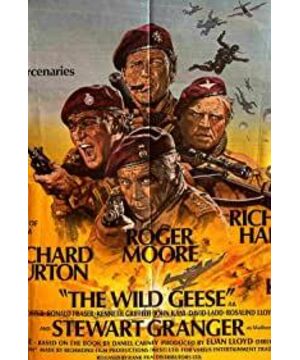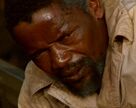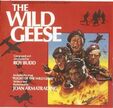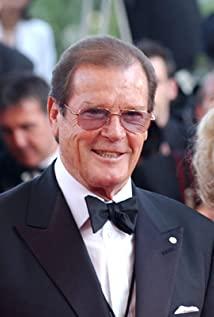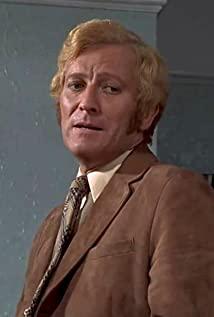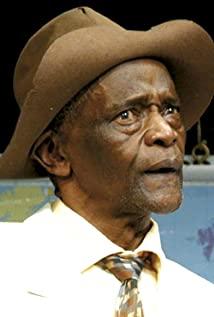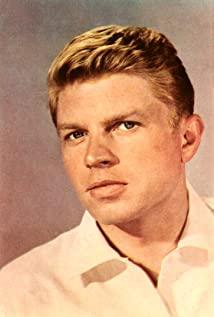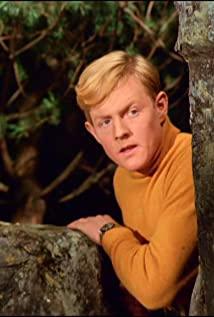Thirteen years have passed from "Berlin Bournemouth" to "The Wild Goose".
He couldn't hold his lover's hand back then, so he could only watch her get out of his palm after being shot and fell heavily at the foot of the Berlin Wall. Only one step away from freedom, but the gap between life and death. He could only call her name in vain, but couldn't see her face hidden by black hair in the boundless darkness.
Now he couldn't hold his comrade-in-arms hand, and could only watch him get out of his palm after being shot, limping and being thrown on the runway by the plane, behind him was a dense and insatiable pursuit of enemies. military. He can only shoot himself personally to end his favorite comrade-in-arms.
Twenty-one years have passed from "Blood in the Desert" to "Wild Goose".
When the young man in "Blood in the Desert" in 57 had to shoot to death his comrades who were seriously injured and wanted to die quickly, he went through a long and painful hesitation and entanglement, and even cried silently for this.
In 1978, the old man in "Wild Goose" encountered the same situation, he only hesitated for a moment, and decided that he would personally send these comrades on the road.
When people are old, their hearts are hardened. From the innocent Captain Leith, to the melancholy Mr. Limas, and finally to the old and shabby Colonel Faulkner. He has also grown, matured, and grown old with his role.
Comparing "Berlin Bournemouth", it seems that he should make a choice at different stages of his life.
Like the most classic line of Hamlet played by him, "survival or death is an anxious question."
In his middle age, he chose to die after a moment of hesitation. In his old age, he chose to shoot resolutely after a moment of hesitation and revenge afterwards. People always don't cherish their lives when they are young, and there is nothing left when they die. But only after old age will I know that revenge alive is more valuable and meaningful.
Probably it has always been regarded as "the greatest male symbol in the world", so Richard Burton rarely cries in his movies, and the directors seldom make his character cry. However, the few crying scenes were quite exciting and shocking. It seemed that when he cried, I had the urge to cry.
In the 1960s, his performance was at its first peak. At this time, his study of acting skills was almost crazy. He collected the best of hundreds of families, from John Gilgood to Taylor to Brando. Whether it is experiential or methodist, whether it is drama or film, he is trying hard to learn how they perform.
When he filmed "Domination of the World" in 1964, he said that he was inspired by Taylor's lens and found a more impressive way of acting, which is "absolutely quiet."
Sure enough, in this drama he used his calmness to control the entire screen, he found a convincing way of acting, and he entered a great period of his film performance.
This way of acting makes him very strenuous, because he not only has to maintain great restraint, but also uses micro-expression and small body language to achieve the intense emotional ups and downs that the character should have.
During the filming of "Spring Night", he said, "This is a huge challenge for me, and it is also very painful. Every movement must be controlled, and I must be restrained at all times. In terms of characterization, even one Very small movements and simple lines are all important...I really don’t know what to do."
However, when he entered the role, he was a living person in the play. The director was shocked when he saw him. "I'm sure that there is a desire to be abused and tortured in this person. "
Burton attaches great importance to the feelings that an actor puts into acting. For example, in 1982 he was drunk and scolded him in person, Lawrence Oliver, whom he has always admired. "An eccentric and exaggerated actor who has no real emotions and relies purely on acting." .
If you want to be non-exaggerated and have the audience feel the true feeling of the character, you must first move yourself. As he once summed up, "I must first fall in love with her, or make myself believe that I am in love with her." "If I don't have feelings for a woman, it will be difficult for me to act emotionally with her to be passionate."
As a result, he was over-involved twice because of playing a tragic role, and even suffered from depression.
People only see that he is particularly suitable for acting as a tragic character, but they can't see how much sacrifice he has made secretly for this. This sacrifice is at the cost of aggravating his mental depression. Every time he performed with a heart-to-heart break, he pushed him one step closer to the abyss of collapse.
The strange thing is that in the second stage of his career, from 1976 to 1984, he would no longer be too deeply into the drama and sad.
He himself said, "From 68 years to the present (76 years), I probably experienced menopause. In those years, I always wished to die, like a drunk poet dying in his vomiting gutter."
In "Horse Lovers" in 1977, the vicissitudes of his final speech made the listener have the urge to destroy and die together with his spirit and soul.
However, he will no longer cause his emotional breakdown again because of such a tragic performance.
Until his body collapsed completely in 1981, his illness seemed to be under control, and he had lived a normal life for several years. Including the performance, it is not done at the expense of self-defeating, and is performed in the same painful state as the character.
"Wild Goose Squad" is a work from this period. It can be said that he has reached the point of truly reaching the realm of transformation at this time. He can truly lift the weight and separate himself from the role. This is his real way out.
In 1981, he had several operations and hospitalizations, and suffered from various diseases. He fell into the trough of life again, began to drink, wander, indulge his bad temper, and once gave up on himself.
However, by the year 1984, he obviously wanted to drive, and he no longer paid attention to his already dying body and spirit. Performance seemed to be the last stage of his life. He always had to find something to do for himself.
During the filming of "1984", his performance was indifferent and calm. The director said that he doesn't care about the psychology of the character at all, and he is more like a phenomenal actor.
A person can achieve true peace only after he has seen through the world. Even if he has never been dull in his life, in the final stage, he can still dedicate a new way of performance.
This kind of performance seems to be hard-hearted and ruthless. He will no longer suffer from a painful breakdown of people or things that he cannot catch and cannot save, so his image is no longer Lith, no longer Limas, no longer Faulkner, but becomes After O'Brien, he completely restored the original image, a successful O'Brien.
View more about The Wild Geese reviews


